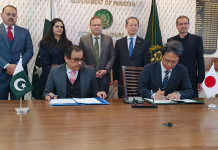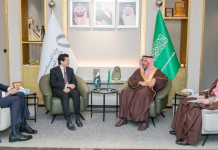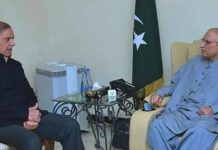Trump, Starmer
differ on Palestine
recognition; show
unity on Russia
Centreline Report
LONDON, Sept 18 — U.S. President Donald Trump and British Prime Minister Keir Starmer held a joint press conference in London today, where both leaders projected unity on global security challenges but revealed a stark difference of opinion over the question of recognizing Palestine as an independent state.
The highly anticipated press briefing at Downing Street was dominated by two issues: the recognition of Palestine and the ongoing war in Ukraine. Prime Minister Starmer reiterated his government’s long-held position that the United Kingdom remains open to formally recognizing a Palestinian state as part of its commitment to a two-state solution. “The UK believes that recognition of Palestine is a legitimate step that may need to be taken sooner rather than later in order to create a pathway to peace,” Starmer said.
President Trump, however, strongly opposed the idea, stressing that the release of Israeli hostages must remain the priority. “Until and unless all hostages are freed, such an option should not even be considered,” Trump declared, drawing a sharp contrast with the UK’s more Europe-aligned approach. Analysts note that this divergence could mark a shift in the traditionally close U.S.-UK foreign policy alignment.
On the issue of Russia and Ukraine, however, both leaders struck a united front. They expressed strong distrust in Russian President Vladimir Putin and pledged to increase pressure on Moscow. “Putin cannot be trusted. He has let me down,” Trump said candidly, while Starmer echoed that the Kremlin’s actions have prolonged unnecessary suffering in Ukraine. Both leaders vowed to work with NATO partners to press for an early resolution of the conflict and to keep military and economic pressure on Moscow.
Despite differences over Palestine, both Trump and Starmer sought to highlight the enduring strength of U.S.-UK relations. They emphasized the “impeccable relationship” between the two countries, pointing to historic ties, multi-billion-dollar investments, and a long record of military, intelligence, and economic cooperation. “We are natural allies,” Starmer affirmed, with Trump adding that the alliance was “as strong as ever.”
Yet, observers note that the UK’s apparent willingness to align with European partners on the Palestine issue could complicate this equation. While both leaders underscored unity, the divergence revealed today suggests that one of the world’s closest alliances may face new strains as London and Washington navigate different approaches to Middle East diplomacy.

















